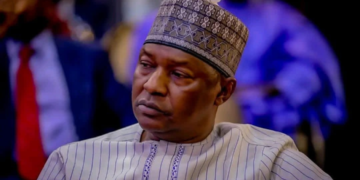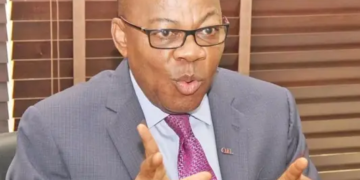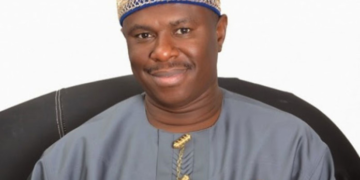Nigeria’s Minister of Power, Adebayo Adelabu, revealed that Nigerians spent a staggering N16.5 trillion on diesel, petrol, generators, and related servicing in 2023. This expenditure underscores the ongoing energy crisis, as many Nigerians rely on alternative power sources due to inconsistent electricity supply.
Speaking at the 2024 Nigeria Oil and Gas Conference in Abuja, Adelabu highlighted the stark contrast between the informal sector’s spending on power alternatives and the formal power sector’s revenue. He noted that while power consumers in the informal sector spent over N16 trillion, the formal power sector, including electricity generation, transmission, and distribution companies, generated only N1 trillion in revenue last year.
Adelabu, who has faced criticism for multiple national grid collapses and increased electricity tariffs, stated, “If you know how much our people spend buying diesel, petrol, generators, and servicing them in a year; the last study we had in 2023, a total of N16.5 trillion was spent on this in self-generation. Even a number of the industries are off the grid. They now have their captive power between their environments with gas-powered generators.
“So spending in this sector out of the grid is close to N20 trillion. And let me blow your mind, the revenue for the entire industry, the grid, I mean the formal power sector was just N1 trillion for 2023 that goes to the generation companies, transmission company, and the distribution companies. Just N1 trillion formal revenue. But the informal spending on generators, diesel, petrol, was close to N20 trillion.
“Even if just a quarter of that is put in the official power sector, we are talking about incremental revenue of N5 trillion that will bring the sector’s revenue to N6 trillion. Sincerely, we are going to have something close to uninterrupted 24/7 power supply in Nigeria.”
The minister emphasized the government’s efforts to restore consumer trust in the national grid, highlighting that electricity provided by the grid is cheaper than diesel or petrol-powered generators. He pointed out the cost disparity, noting that Band A customers paying N206 per kilowatt-hour for uninterrupted grid supply, compared to N290 for gas-powered captive generators, N450 for petrol generators, and over N900 for diesel generators.
Adelabu also noted that the power sector consumes the largest share of Nigeria’s domestic gas supply. He called on investors to consider further developing the country’s abundant, unexploited non-associated gas reserves to enhance power generation.
By addressing the inefficiencies and rebuilding trust in the national grid, the government aims to reduce the reliance on costly and less efficient power alternatives, ultimately moving towards a more stable and affordable power supply for all Nigerians.

































